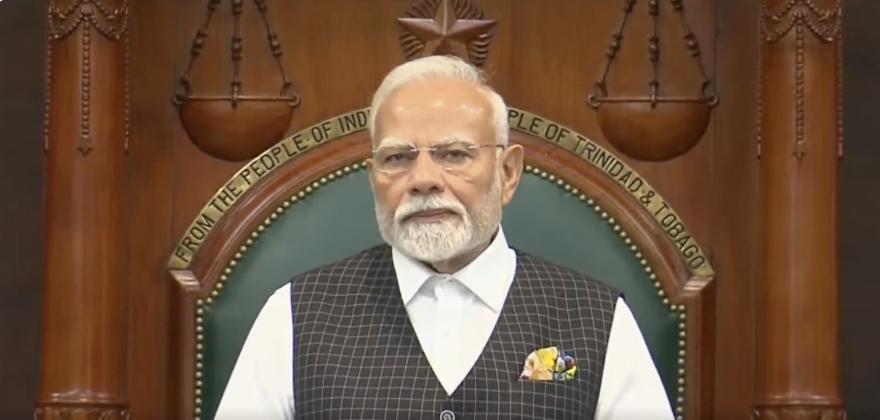
Glad to see so many women MPs: PM in Trinidad & Tobago parliament
On Friday, Prime Minister Narendra Modi addressed the joint assembly of Trinidad and Tobago’s parliament, and his remarks were filled with praise for the significant presence of women members in the house. Modi, who was visiting Trinidad and Tobago as part of his diplomatic tour, took the opportunity to highlight the importance of women’s empowerment in Indian culture and its role in shaping the country’s modern future.
The Prime Minister’s remarks came as a welcome gesture, especially in a region where women’s participation in politics is still relatively low compared to other parts of the world. Trinidad and Tobago, a twin-island nation in the Caribbean, has made strides in recent years to increase women’s representation in parliament, but there is still a long way to go.
Modi’s statement was a testament to India’s commitment to women’s empowerment, which has been a key aspect of the country’s development strategy in recent years. India has made significant strides in terms of women’s participation in politics, education, and the workforce, and Modi’s government has been at the forefront of these efforts.
The Prime Minister’s words were also a reflection of the changing face of Indian politics, where women are increasingly playing a more prominent role. In the 2019 general elections, the number of women MPs in the Indian parliament saw a significant increase, with 78 women elected to the Lok Sabha, the lower house of parliament.
India’s progress on women’s empowerment is not limited to politics alone. Women are leading the charge in various domains, from science and technology to business and entrepreneurship. In recent years, India has seen a surge in the number of women starting their own businesses, and many have achieved significant success in a range of industries.
Modi’s comments were also a nod to the importance of respecting and empowering women, which is deeply rooted in Indian culture. In Hinduism, the mother goddess is revered as a symbol of fertility, nurturing, and protection, and women are often seen as the embodiment of these qualities.
In many Indian families, women are expected to play a central role in household and family affairs, and are often seen as the ones who hold the family together. This cultural emphasis on the importance of women’s roles has led to a strong sense of respect and reverence for women, which is reflected in Modi’s statement.
The Prime Minister’s words were also a reminder that women’s empowerment is not just a moral or cultural imperative, but also a critical component of India’s economic and social development. Research has shown that when women are empowered, they are more likely to invest in their families and communities, and to contribute to economic growth and development.
In Trinidad and Tobago, women’s participation in politics is still relatively low, with women making up just 21.5% of the country’s parliament. However, there are signs that this is changing, with more women entering politics and increasing their visibility in public life.
Modi’s visit to Trinidad and Tobago was seen as an opportunity to promote greater cooperation and understanding between the two countries, and his remarks on women’s empowerment were seen as a key aspect of this effort. The Prime Minister’s words were also a reminder of the importance of international cooperation and solidarity in promoting women’s rights and empowerment.
In conclusion, Prime Minister Narendra Modi’s remarks in the Trinidad and Tobago parliament were a welcome gesture, highlighting the importance of women’s empowerment in Indian culture and its role in shaping the country’s modern future. As India continues to make progress on women’s empowerment, it is clear that the country is leading the way in promoting greater respect and recognition for women’s roles in society.



